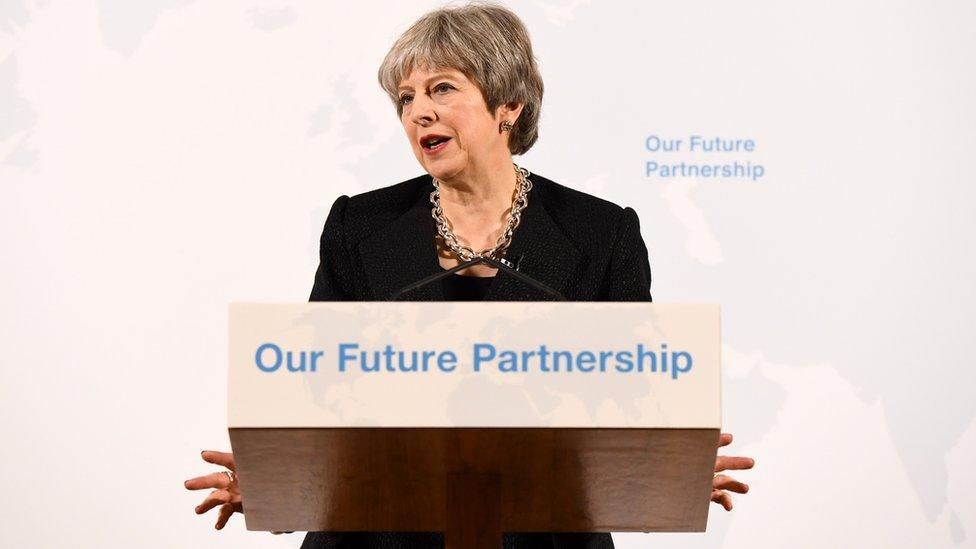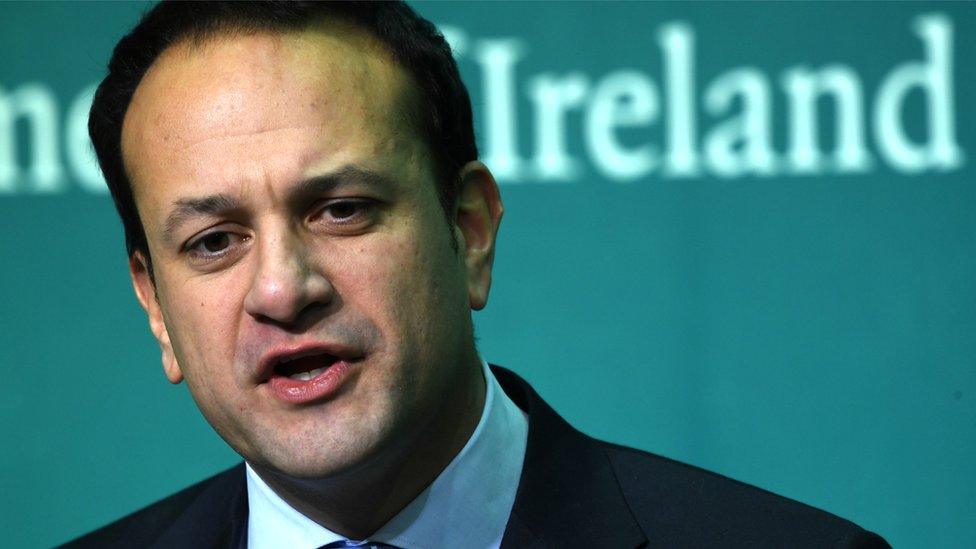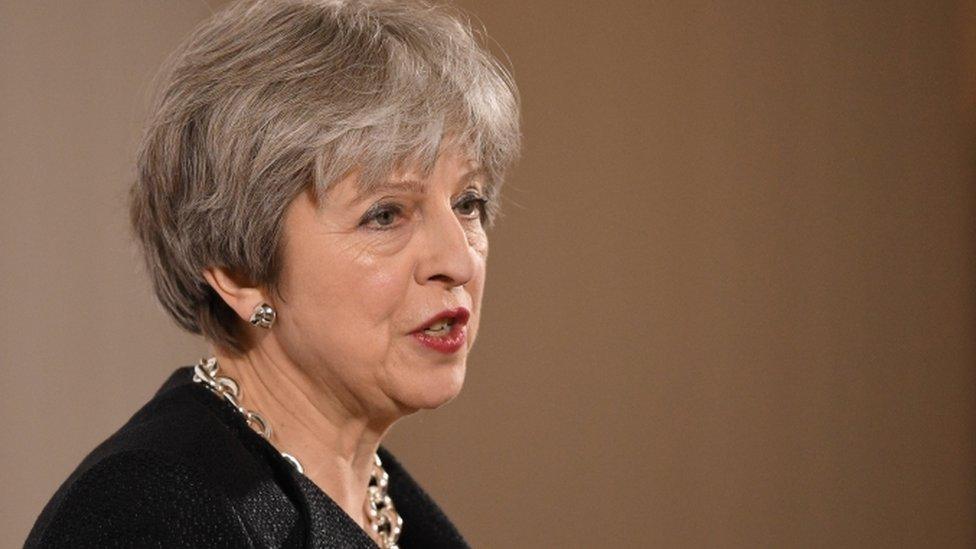Theresa May's Brexit speech more pragmatism than policy
- Published

Theresa May warned both sides had to accept "hard facts" in the Brexit talks
Theresa May's Brexit speech came with a conciliatory tone on the Irish border, but not much in the way of new policy.
The Prime Minister singled out the talking point favoured by some of the more hardline Brexit supporters in her party: "We won't introduce a hard border; if the EU forces Ireland to do it, that's down to them."
That attitude is not good enough, scolded Theresa May.
She added: "We chose to leave; we have a responsibility to help find a solution."
Mrs May went on to say that trading on World Trade Organisation (WTO) terms, which some Brexit supporters think would be absolutely fine, would not be enough for the UK to keep its border promises.
She said: "This would mean customs and regulatory checks at the border that would damage the integrated supply chains that our industries depend on and be inconsistent with the commitments that both we and the EU have made in respect of Northern Ireland."
Full speech where PM said: "We chose to leave, we have a responsibility to help find a solution"
When it comes to honouring those commitments on the border, her policy covered two areas: a new customs deal and mutual recognition of product standards.
As a reminder, the Irish border currently operates in a seamless fashion because both parts of the island are in the customs union and the single market.
'Prospect of border checks'
The customs union means there are no tariffs on goods moving across the border while the single market means product standards are harmonised.
When the UK leaves both the single market and the customs union it raises the prospect of border checks for both tariffs and product standards.
On the issue of customs Mrs May simply restated two ideas which the UK floated in August.
One was for a customs partnership - a complicated scheme which would see the UK effectively acting as a customs agent for the EU.
The second is a "highly streamlined customs arrangement" part of which would include small traders in Northern Ireland being exempted from all customs procedures for cross-border trade.

Leo Varadkar said he was concerned Mrs May did not fully recognise the implications of leaving
The problem is that when these schemes were first proposed they met with a sceptical response in Brussels.
The EU's chief negotiator, Michel Barnier, said some of the ideas "worried" him and that "creativity and flexibility cannot be at the expense of the integrity of the single market and the customs union".
Mrs May is effectively asking the EU to have another look.
On the issues of product standards, Mrs May said the UK believes this problem can overcome by "a commitment to ensure that the relevant UK regulatory standards remain at least as high as the EU".
She acknowledged this would constrain the UK's ability to lower regulatory standards for industrial goods but added that "in practice we are unlikely to want to reduce our standards".
This would require what Mrs Mays described as "a comprehensive system of mutual recognition".
'Harmonisation'
In other words, the EU and UK would accept that although they each have different rules, they achieve the same outcomes and so automatically allow products onto their each others markets.
This is ambitious.
Sam Lowe, a trade policy analyst at the Centre for European Reform, says that mutual recognition to the extent Mrs May intends "only exists in two places - the EU and a Australia-New Zealand Trans-Tasman agreement".
He points that both these arrangements come with "shared political institutions, shared agencies, and ended up moving towards harmonisation".
The Irish government has also reacted in a cautious fashion.
Taoiseach (Irish Prime Minister) Leo Varadkar said on Friday that he remained concerned Mrs May did not fully recognise the implications of leaving the customs union and single market.
"I have listened to the Prime Minister's speech, and the Government will study it closely," he said.
"She has given a number of important reassurances today, which I welcome, including restating her overall goal of a very close relationship with the EU.
"However, I remain concerned that some of the constraints of leaving the Customs Union and the Single Market are still not fully recognised.
"We will now need to see more detailed and realistic proposals from the UK. Brexit is due to happen in a little over 12 months, so time is short," he added.
- Published2 March 2018
